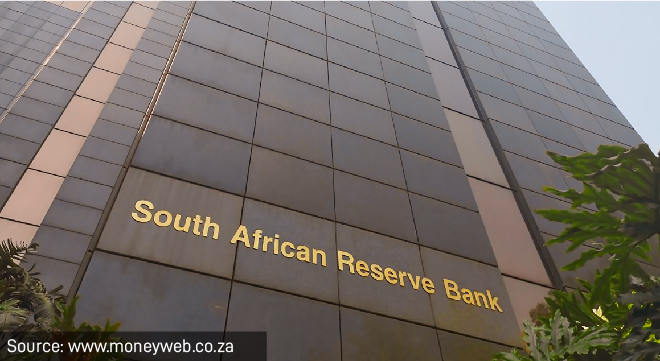Most economists who participated in a poll by Reuters expect that the South African Reserve Bank (Sarb) will raise the repo rate by 75 basis points this week.
Of the 20 economists polled between 7 and 14 September, 12 predicted another 75bp hike, which would take the repo rate to 6.25%, when the bank’s Monetary Policy Committee meets on Thursday. The other eight economists forecast a half-point increase.
Thereafter, the Sarb is expected to increase the rate by 25bp in November and in either January or March before pausing at 6.75% for the remainder of next year, marking a peak in the cycle, according to the poll.
One of the economists who predicts a 75bp hike is Jeff Schultz, senior economist at BNP Paribas South Africa, who correctly forecast that the Sarb would raise the repo rate by 75bp in July, whereas the consensus forecast was 50bp.
Read: Prepare for two massive repo rate hikes, says commercial bank
“We still expect the Sarb to keep its foot firmly on the hiking pedal,” said Schultz, adding a terminal rate of 7% will be reached in January 2023.
He said BNP Paribas’s above-consensus view reflects rising unit labour costs, sticky two-year inflation expectations in the third quarter and the prospect of rand weakness on a return to twin deficits.
“The risks to our view are tilted to the upside, with the possibility of higher rates into next year if core pressures prove more problematic than we already expect.”
BNP Paribas said it does not think the Sarb yet fits the mould of those emerging-market central banks that have signalled a slowdown in the pace of tightening.
“For starters, the Sarb has thus far unwound only 200bp of its 275bp policy support in response to the pandemic,” said Schultz.
He said this week’s 75bp increase would bring the repo rate back to pre-Covid levels, BNP Paribas did not that would be enough in light of South Africa’s sticky inflation outlook.” The main reason for this outlook is that he anticipates a slow return to the inflation target in the second half of 2024.
“Judging by Sarb governor Lesetja Kganyago’s recent comments that it is ‘too early to call the inflation peak’, the bank is uneasy – and rightly so, in our view – with materialising upside risks to the inflation outlook, despite slowing global oil and food prices,” he said.
BNP Paribas said it thinks that risks to its prediction of a 75bp hike this week are skewed towards a more hawkish statement and 100bp hike; a 50bp move was much less likely.
“Our base case is for September’s 75bp to be followed by another 50bp in November and a final 25bp in January 2023 for a terminal rate of 7%, with the risk of up to 7.5%, depending on how risks materialise. Markets are pricing in more than 150bp of hikes before year-end, compared with the current Reuters sell-side consensus of 100bp,” said Schultz.
Wage increases driving inflation
BNP Paribas said it warned earlier this year that unit labour costs, an important anchor of low-for-longer core inflation, were starting to rise.
“We maintain this concern, as economic momentum is already slowing down, while the average level of wage settlement looks to be above a 6% increase.
“We think headline inflation peaked in July, as we expect the August data to show the CPI rate slowing to 7.4% from 7.8% in July. However, we think core CPI will continue to climb, hitting 4.7% in August and peaking at 5.7% only in May 2023,” said Schultz.
But Standard Bank said the moderation in many commodity prices in recent months – notably food and fuel – has for some time boded well for a likely easing of global inflation pressures.
The 10% decline in domestic fuel prices in September should reduce not only inflationary pressure and the risk of second-round effects but also inflation expectations.
“We expect July to have been the peak in the consumer inflation cycle, and there might be a slight moderation from August. Of course, the latest bout of rand weakness will be inflationary, but we reiterate that the inflationary impact is less than may be inferred from looking at the rand,” said Standard Bank senior economist Elna Moolman.



